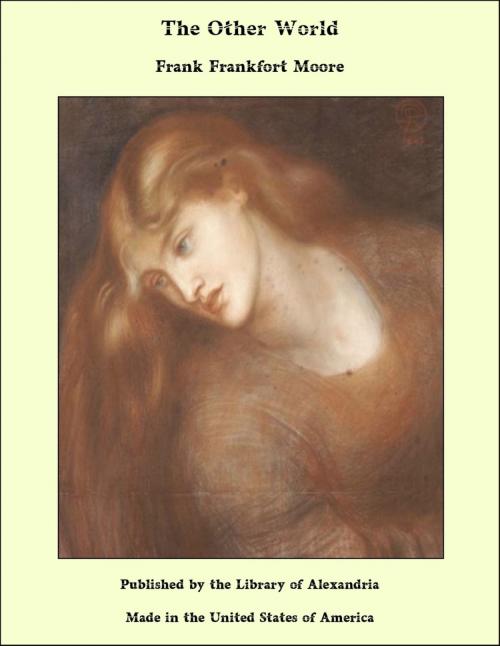| Author: | Frank Frankfort Moore | ISBN: | 9781465626882 |
| Publisher: | Library of Alexandria | Publication: | March 8, 2015 |
| Imprint: | Language: | English |
| Author: | Frank Frankfort Moore |
| ISBN: | 9781465626882 |
| Publisher: | Library of Alexandria |
| Publication: | March 8, 2015 |
| Imprint: | |
| Language: | English |
The majority of the passengers aboard the steam yacht Bluebottle said that it was anybody’s game. In the smoking-room—when neither Somers nor Norgate was present of course—the betting varied daily according to the events of the day. At first the odds were slightly in favour of Teddy Somers—yes, she undoubtedly gave signs of enjoying the companionship of Mr Somers. She had been seen by trustworthy witnesses standing behind him while he sketched with a rapid pencil the group of Portuguese boatmen surrounding the solitary Scotchman, who had got the better of them all in a bargain, within the first hour of the arrival of the yacht in Funchal Bay. Afterwards she had been noticed carefully gumming the drawing upon a cardboard mount. Would a girl take all that trouble about a man unless she had a sincere regard for him? was the question which a sapient one put to a section of his fellow passengers, accompanying an offer of three to one on Somers. But after a pause, which somehow seemed to suggest an aggregation of thought—the pauses of a conscientious smoker are frequently fraught with suggestions—a youth who had been accused of writing poetry, but whose excellent cigars did much to allay that suspicion, remarked—“What you say about the drawing suggests that the girl takes an interest in him, and that would be fatal to her falling in love with him.” There was another long pause, during which the smokers looked at one another, carefully refraining from glancing at the speaker, until the man who had offered the odds said— “Do you mean to tell us that a girl’s being interested in a chap isn’t the first step to her falling in love with him?” “I have no hesitation in saying so much—I could say a good deal more on the same subject,” replied the propounder of the theory. Then it was that a number of the men glanced quickly toward him,—there was something of an appeal for mercy in the glance of most of them: it seemed as if they were not particularly anxious to hear a good deal more on the same subject. It is scarcely necessary to say, however, that the circumstance of their not wanting to hear a good deal more did not prevent the poet (alleged) from telling them a good deal more. It took him twenty-five minutes to formulate his theory, which was to the effect that it is impossible—impossible was the word he employed: there is no spirit of compromise on the part of a theorist, especially when he is young, and more especially when he has been suspected of writing poetry—impossible for a woman to love a man who has at first merely interested her. “Love is a passion, whereas interest is—well, interest is merely interest,” said he, with that air of finality which a youthful theorist assumes when he is particularly absurd—and knows it. “Yes, when a woman hates a man thoroughly, and for the best of reasons,—though for that matter she may hate him thoroughly without having any reason for it,—she is nearer to loving him thoroughly than she is to loving a man who merely interests her, however deep may be the interest which he arouses.”
The majority of the passengers aboard the steam yacht Bluebottle said that it was anybody’s game. In the smoking-room—when neither Somers nor Norgate was present of course—the betting varied daily according to the events of the day. At first the odds were slightly in favour of Teddy Somers—yes, she undoubtedly gave signs of enjoying the companionship of Mr Somers. She had been seen by trustworthy witnesses standing behind him while he sketched with a rapid pencil the group of Portuguese boatmen surrounding the solitary Scotchman, who had got the better of them all in a bargain, within the first hour of the arrival of the yacht in Funchal Bay. Afterwards she had been noticed carefully gumming the drawing upon a cardboard mount. Would a girl take all that trouble about a man unless she had a sincere regard for him? was the question which a sapient one put to a section of his fellow passengers, accompanying an offer of three to one on Somers. But after a pause, which somehow seemed to suggest an aggregation of thought—the pauses of a conscientious smoker are frequently fraught with suggestions—a youth who had been accused of writing poetry, but whose excellent cigars did much to allay that suspicion, remarked—“What you say about the drawing suggests that the girl takes an interest in him, and that would be fatal to her falling in love with him.” There was another long pause, during which the smokers looked at one another, carefully refraining from glancing at the speaker, until the man who had offered the odds said— “Do you mean to tell us that a girl’s being interested in a chap isn’t the first step to her falling in love with him?” “I have no hesitation in saying so much—I could say a good deal more on the same subject,” replied the propounder of the theory. Then it was that a number of the men glanced quickly toward him,—there was something of an appeal for mercy in the glance of most of them: it seemed as if they were not particularly anxious to hear a good deal more on the same subject. It is scarcely necessary to say, however, that the circumstance of their not wanting to hear a good deal more did not prevent the poet (alleged) from telling them a good deal more. It took him twenty-five minutes to formulate his theory, which was to the effect that it is impossible—impossible was the word he employed: there is no spirit of compromise on the part of a theorist, especially when he is young, and more especially when he has been suspected of writing poetry—impossible for a woman to love a man who has at first merely interested her. “Love is a passion, whereas interest is—well, interest is merely interest,” said he, with that air of finality which a youthful theorist assumes when he is particularly absurd—and knows it. “Yes, when a woman hates a man thoroughly, and for the best of reasons,—though for that matter she may hate him thoroughly without having any reason for it,—she is nearer to loving him thoroughly than she is to loving a man who merely interests her, however deep may be the interest which he arouses.”















